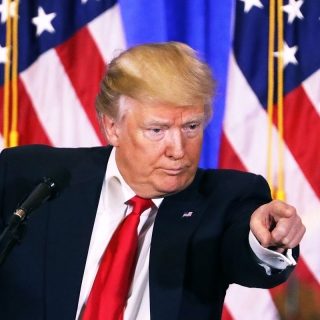


US President Donald Trump on Thursday announced sweeping new import tariffs, including a 100% duty on brand-name drugs and a 25% levy on heavy-duty trucks, sparking renewed trade uncertainty after a period of relative calm.
This latest attack, which Trump says is aimed at protecting the US manufacturing industry and national security, follows broad tariffs of up to 50% on trading partners and other targeted levies on imported products such as steel.
This is the latest turmoil for global businesses already struggling with complex supply chains, soaring costs, and consumer uncertainty caused by Trump's trade wars. These tariffs have cast a shadow over global growth, while the Federal Reserve has said they have also contributed to higher US consumer prices.
INVESTORS KEEP CALM AND CARRY ON
The new actions are seen as part of the Trump administration's shift to more established legal authority for its trade actions, given the risks associated with a Supreme Court case regarding the legality of its global tariffs.
This series of new announcements follows a relatively calm period after Trump reached trade deals with several major trading partners over the summer. These announcements could reignite the uncertainty that clouded the business outlook during the spring, when new import tariff announcements were almost weekly.
"If there are certain sectors where you see new announcements, of course, that's going to slow you down," Federal Reserve Bank of Richmond President Tom Barkin said on Bloomberg TV. "There are sectors with much more clarity, and sectors with much less clarity." Asian stocks fell, led by pharmaceutical companies, but European stocks recovered from early losses amid uncertainty about how broadly some of the tariffs will be applied.
Mixed U.S. equity futures indicate that investors are largely ignoring Trump's latest tariff announcements, BMO Economics said in a note.
"Until the U.S. economy shows more signs of strain from the trade war, investors seem to prefer to stay calm and move on," BMO said. Trump's announcement on Truth Social did not mention whether the new levies would add to existing national tariffs. Recent trade deals with Japan, the European Union, and the United Kingdom include provisions limiting tariffs on certain products, such as pharmaceuticals. (alg)
Source: Reuters
President Donald Trump announced a new peace pact between Rwanda and the Democratic Republic of Congo, which he linked to US access to critical minerals. At a meeting in Washington, Trump claimed his ...
A five-hour meeting between Russian President Vladimir Putin and Donald Trump's special envoy, Steve Witkoff, and his son-in-law Jared Kushner, in the Kremlin, failed to produce a peace agreement to e...
US President Donald Trump has hinted that Kevin Hassett, the current chairman of the National Economic Council, whom Donald Trump appointed to the position, is a likely choice from the shortlist of ca...
Vladimir Putin warned that Russia might consider attacking ships of countries supporting Ukraine if the surge in attacks on Moscow's tanker fleet continues, according to local media reports. There ha...
Russian President Vladimir Putin said on Thursday (November 27) that a draft outline of a peace proposal being discussed by the United States and Ukraine could form the basis of a future agreement to ...
European stocks edged higher, posting a second straight week of gains, as markets continued to assess the outlook for interest rates next year, the returns from a surge in AI capital spending, and the possibility of a ceasefire between Russia and...
Gold (XAU/USD) strengthened slightly on Friday (December 5th) as the latest US economic data reinforced expectations of a Federal Reserve interest rate cut next week. Steady PCE inflation and easing consumer inflation expectations kept the policy...
Oil prices rose as U.S. stocks continued their rally, extending a two-day rally, while investors assessed the prospects for a ceasefire in Ukraine and signs of a widening global surplus. West Texas Intermediate crude oil prices traded above $60...
 Asia Pacific stock markets opened quietly on Wednesday morning, with investors awaiting the release of key economic data from the United States and...
Asia Pacific stock markets opened quietly on Wednesday morning, with investors awaiting the release of key economic data from the United States and...
 Private businesses in the US cut 32K jobs in November 2025, following an upwardly revised 47K gain in October, and compared to forecasts of a 10K...
Private businesses in the US cut 32K jobs in November 2025, following an upwardly revised 47K gain in October, and compared to forecasts of a 10K...
 US President Donald Trump has hinted that Kevin Hassett, the current chairman of the National Economic Council, whom Donald Trump appointed to the...
US President Donald Trump has hinted that Kevin Hassett, the current chairman of the National Economic Council, whom Donald Trump appointed to the...
 A five-hour meeting between Russian President Vladimir Putin and Donald Trump's special envoy, Steve Witkoff, and his son-in-law Jared Kushner, in...
A five-hour meeting between Russian President Vladimir Putin and Donald Trump's special envoy, Steve Witkoff, and his son-in-law Jared Kushner, in...